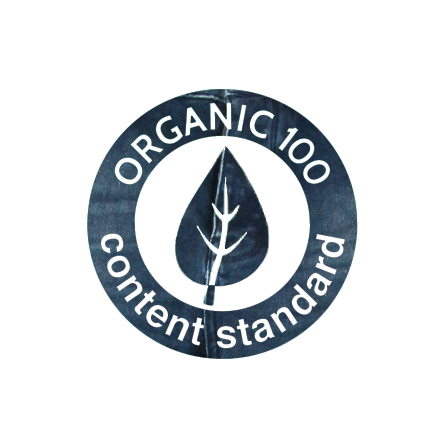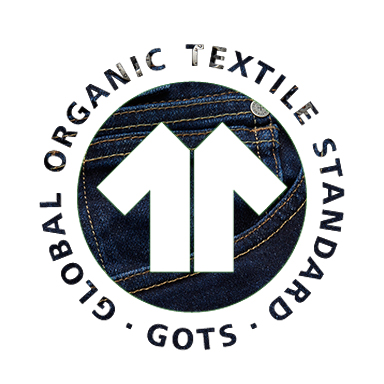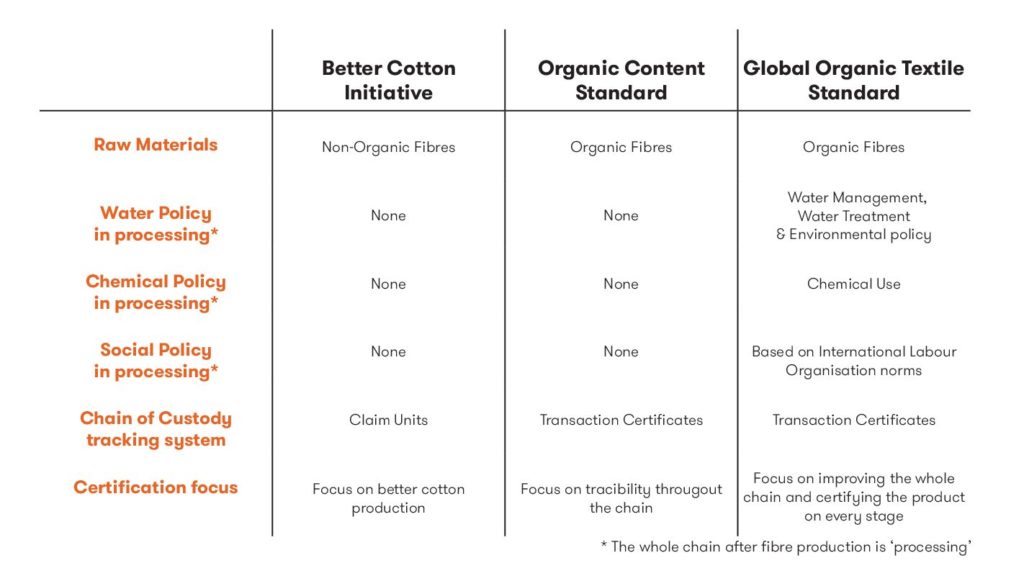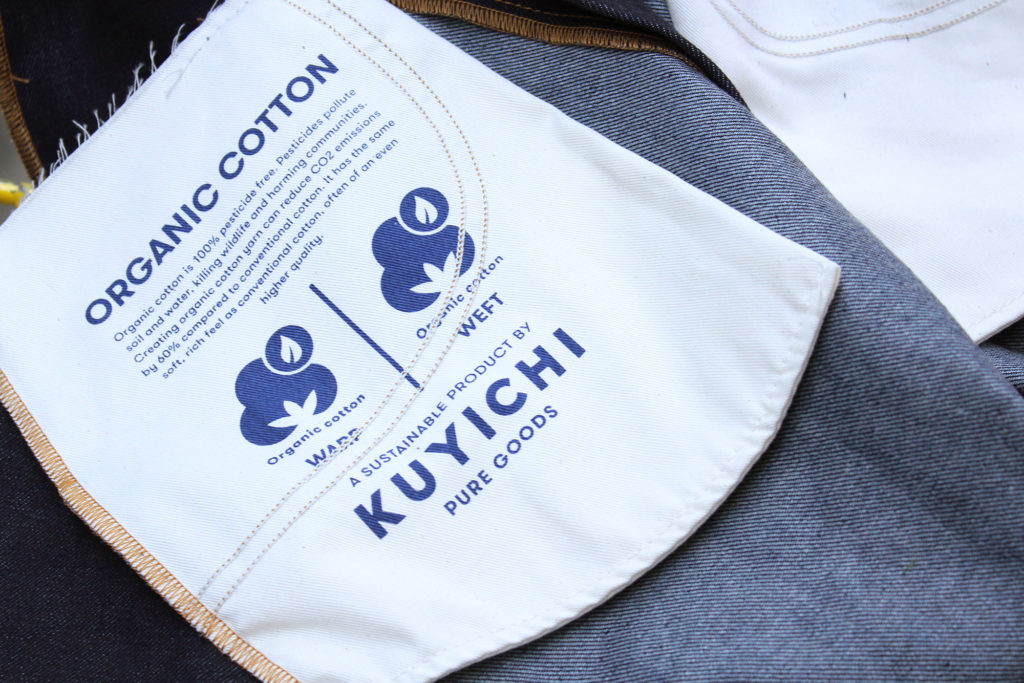The landscape of certifications can be cloudy. There are plenty when it comes to fashion and they are hard to tell apart. They do have an important role when it comes to organic cotton. Since organic is not a protected name, the certifications give a guarantee to you – the people choosing organic over conventional cotton. So what is organic cotton? Which certifications are there, what are the differences? And why do we choose to only work with GOTS certified cotton?
There are many reasons why we choose organic over conventional cotton. To put it simply: it’s better in many ways. The biggest impact lies in the fact that organic cotton is grown without the use of chemical fertilizers, pesticides and insecticides. With conventional cotton these contaminate the soil and cause polluted groundwater – also called grey water – disrupting the ecosystem and local communities that rely on it.
“It’s a no-brainer that organic is the way to go”
Organic cotton has other major benefits as well, like a lower carbon footprint and lower water usage through better water management. Last but not least organic cotton is grown from non-genetically modified seeds (GM). Which means farmers keep control over their own businesses and don’t have to buy over-expensive seeds that rely on pesticides to grow. When you look impact-wise, it’s a no-brainer that organic is the way to go. But how can you be sure that all these criteria are being met? Let’s take you through three of the most well-known certifications.
Better Cotton Initiative
BCI does not guarantee organic practices but makes a stand for improvement. You can see them as an advocate for better practices, with the goal to improve cotton production. BCI does this by providing training and guiding farms in making plans and setting goals. The goals involve pesticide usage, water management, soil health, biodiversity enhancement and working conditions. BCI has seven key principles with corresponding criteria they have to meet.
When you meet all of the key principles you’re allowed to sell your cotton as being BCI with a ‘Better Cotton Claim Unit’ (BCCU), used to track the amount of Better Cotton throughout the chain. The brands using BCI on the product did contribute by buying Better Cotton and making it part of the complete chain, but it does not mean that the product you’re buying actually contains the Better Cotton. This makes it an easier system for farmers and buyers to participate in. To conclude, Better Cotton is, in fact, not organic, but it is a step in the right direction.
Organic Content Standard 100 & Blended
As the name already gives away, this certification guarantees organic content. You can obtain two different types; for 95% organic fibres and up you can get OCS 100 certified. If the percentage is below 95%, it gets the certification ‘OCS Blended’, with a minimum of 5% organic fibres. Not only can you certify organic cotton; linen, hemp and other organic fibres can be certified as well.
This certification is solely focused on traceability of the organic content, traced by transaction certificates. It works as follows: Every time the organic content goes to a new company in the chain, a transaction certificate is given that confirms the organic content. This way you can trace the organic raw materials from the final product back to where they were produced. In our believes the first step to a more sustainable industry is more transparency and traceability, and OCS does exactly that.


Global Organic Textile Standard
That brings us to the champion of cotton certifications. The one that does it all. GOTS is one of the strictest certifications around. Not only does it have the same transaction certificate system as OCS, but it also goes beyond the organic raw fibres. If your company is part of a GOTS product chain, it has to follow the rules of the certification when it comes to water treatment, chemical use and labour rights.
Every facility is being held to the same restrictions and has to be compliant with the GOTS social standards based on the International Labour Organisation norms. There are, amongst others, limitations on the percentages of different types of fibres used, the kind of dyes that are allowed and the chemicals you can use during the ‘wet processing’; the treatment of the denim to make it look worn in. Their chemical policy is one of the strictest around!
The final products are totally pesticide, insecticide ánd hazardous chemical free, are made in safe factories and contain organic, natural and minimal synthetic materials. GOTS goes the long run and the certification can get stuck on many levels. But hey, we love a challenge!

This table is based on one from Textile Exchange
To wrap it all up. There are big differences when it comes to these certifications. If it was a competition, GOTS would definitely be the winner. With that in mind, we can proudly say that just recently our denim supplier Dinateks has obtained their GOTS certification as well. We love that we work with so many good suppliers that put in the effort to improve their own facility and the products that they make. Making it possible for us to offer more and more products that are fully certified. Not all of our products are, but our cotton always is GOTS certified!
“If it was a competition, GOTS would definitely be the winner”
Production of Better Cotton is now around 30% of all production worldwide. Organic cotton still makes up less than 1% of the total. We’re proud to be part of this small percentage. However, there is still a long way to go until organic will become the standard.
To get there we have to put in a joined effort, in which you play a big role. You can use your own impact for the better. By buying products with certified organic cotton, you become part of the organic revolution!





Pingback: Where does our name come from? | Kuyichi
Pingback: Denim recycling collab: the Utrechtse Jeans (Kuyichi X De Rode Winkel) | Kuyichi